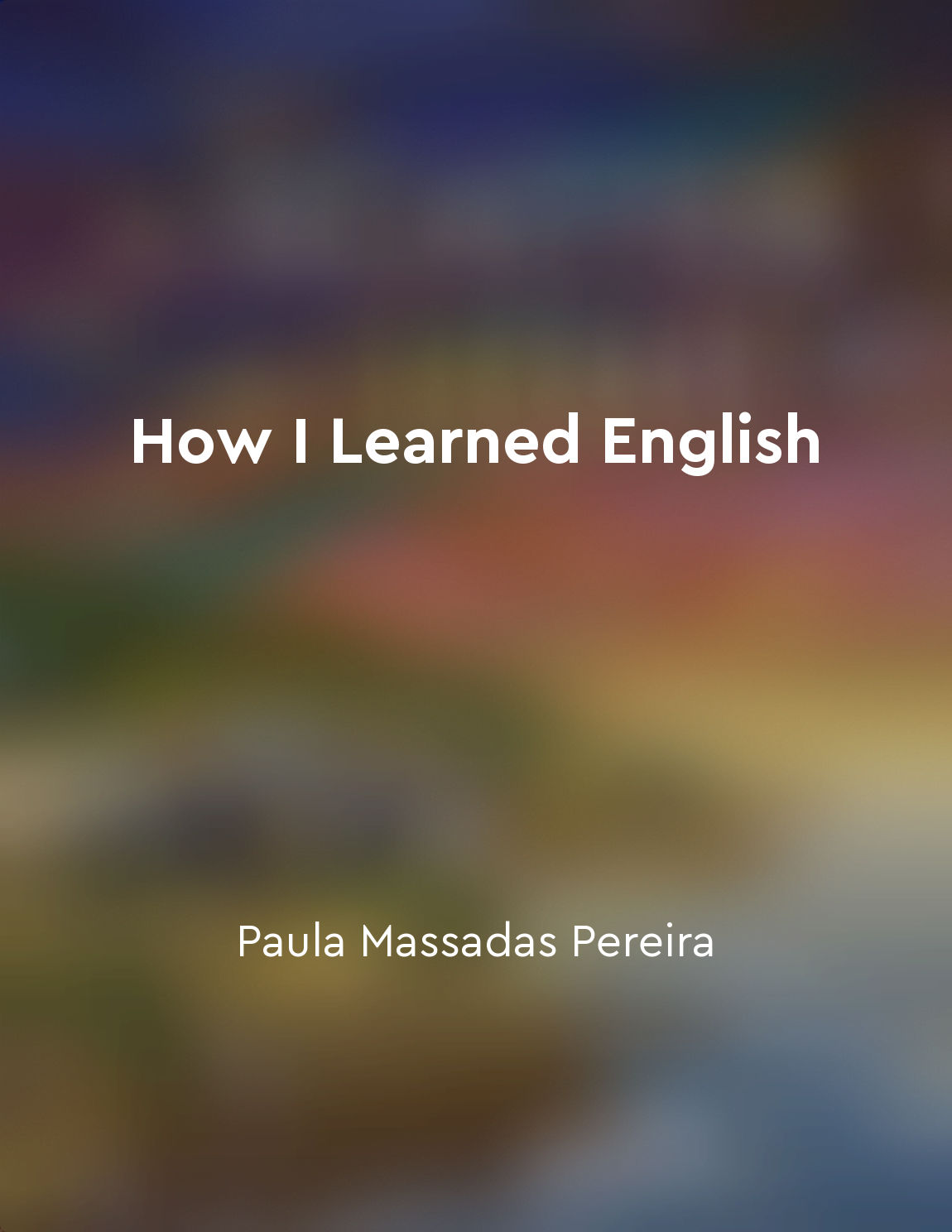Seeking feedback and constructive criticism from "summary" of How I Learned English by Paula Massadas Pereira,Bruna Massadas
As I progressed in my English learning journey, I realized the importance of seeking feedback and constructive criticism. It was not always easy to hear others pointing out my mistakes or areas for improvement, but I knew that it was essential for my growth. Feedback allowed me to see my language skills from a different perspective, helping me identify my weaknesses and work on them. Constructive criticism, in particular, played a significant role in my learning process. Instead of simply pointing out what was wrong, it offered me suggestions on how to improve. This type of feedback was invaluable as it gave me specific guidance on what I needed to focus on. It encouraged me to keep pushing myself and striving for excellence in my language skills. Seeking feedback and constructive criticism also helped me build resilience and a growth mindset. Instead of viewing criticism as a personal attack, I learned to see it as an opportunity for growth. I understood that making mistakes was a natural part of the learning process and that feedback was crucial for my development. Moreover, seeking feedback and constructive criticism allowed me to engage with others in a meaningful way. It created a dialogue between me and my language instructors, classmates, and language exchange partners. Through this dialogue, I was able to learn from others' experiences and perspectives, further enriching my language learning journey.- Seeking feedback and constructive criticism was a vital aspect of my English learning experience. It challenged me to step out of my comfort zone, embrace my mistakes, and continuously strive for improvement. It was through this process that I was able to grow not only as a language learner but also as a person.


